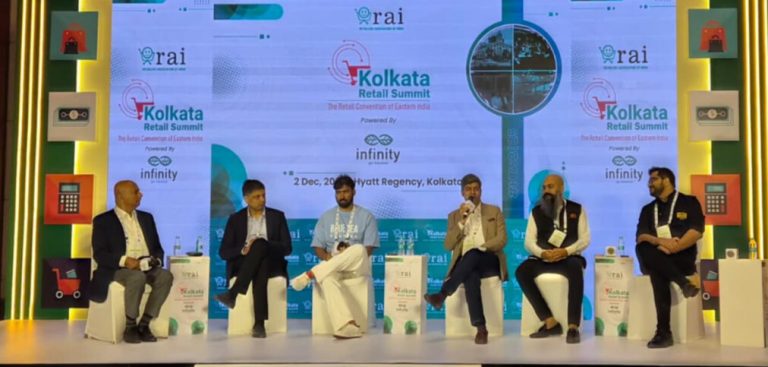Artificial intelligence has the power to change retail — intelligently. And for those who might be considering the worst-case scenario, the reality is going to be far different.
Levi’s plans on utilizing AI to help with its models in an effort to offer more diverse body types. When it first announced the plans, the company received some blowback from critics and quickly put up a post, clarifying that “we are not scaling back our plans for live photo shoots, the use of live models, or our commitment to working with diverse models.”
Levi Strauss & Co. said in an interview that the company will experiment with a “small, controlled” project on Levi.com using AI-generated models “with the objective of learning more and determining whether we can enhance the overall consumer experience.”
Currently, Levi’s has just one model for each product on Levi.com or on its app. “It is physically impossible to shoot every single product at every single size at the SKU (stock keeping unit) level,” the company says, “so this technology can potentially assist us by creating supplemental images and unlocking a future where we can offer a more personal, relevant and potentially more engaging shopping experience.”
The AI technology could help greatly with the bottom line, if customers feel more confident about what they’re buying.
AI technology can be expensive to implement, and right now the ROI (Return on Investment) is unproven.
AI is constantly evolving so the retail industry needs to be measured in how they move to make the best choices for their brands and franchisees.
Brands in India are progressively incorporating AI into their marketing strategies. Here are a few instances in which Indian brands have benefited from AI:
The e-commerce giant Flipkart uses artificial intelligence to recommend products to customers, customize their purchasing experience, and predict demand. For instance, Flipkart’s AI-powered recommendation engine can predict what products a consumer is likely to purchase based on their purchase history, browsing behavior, and other variables. This enables Flipkart to display customers the products that are most relevant to them, which may increase sales.
Amazon India: The online retailer uses artificial intelligence to fuel its voice search feature, customize product recommendations, and optimize its supply chain. Amazon India’s voice search feature, for instance, enables customers to browse for products by speaking into their smartphones. This is a convenient shopping option, particularly for customers who are on the go. Additionally, Amazon India employs AI to personalize product recommendations for customers. For instance, if a customer has purchased a product from Amazon India in the past, the company will use AI to recommend similar products that the customer may be interested in. This increases consumer engagement and sales for Amazon India.
HDFC Bank utilises artificial intelligence to detect fraud, personalize customer service, and offer investment advice. HDFC Bank, for instance, employs AI to detect fraudulent transactions. This aids the bank in safeguarding its customers against financial loss. Additionally, HDFC Bank employs AI to personalize customer service. For instance, if a customer calls the bank, the customer service representative will be able to view the customer’s previous interactions. This assists the customer service agent in providing superior service to the client.
Tata Motors: The automaker employs AI to create self-driving vehicles, enhance its manufacturing process, and personalize customer experiences. Tata Motors, for instance, is utilizing AI to develop self-driving vehicles. This innovation has the potential to completely transform the transportation industry. Tata Motors is also utilizing AI to enhance its production process. For instance, the company uses AI to optimize its automobile production. This aids Tata Motors in lowering costs and increasing efficiency. Additionally, Tata Motors uses AI to personalize consumer experiences. Using AI, for instance, the company recommends products and services to consumers based on their past purchase history and browsing behaviour. This helps Tata Motors increase customer loyalty and satisfaction.
Hindustan Unilever, a manufacturer of consumer goods, employs artificial intelligence to develop new products, optimize its marketing campaigns, and personalize customer engagement. Hindustan Unilever, for instance, is utilizing AI to develop new products that cater to the specific requirements of Indian consumers. Additionally, the company uses AI to optimize its marketing campaigns. Using AI, for instance, the company targets consumers with the most pertinent marketing messages. Similarly, Hindustan Unilever uses AI to personalize customer engagement. For instance, the company uses AI to send personalized emails and offers to consumers.
AI has a promising future in Indian marketing. As AI technology continues to advance, we can anticipate even more innovative and effective AI marketing applications. Here are a few noteworthy trends:
- Increased use of AI-powered chatbots: AI chatbots are gaining popularity in India because they can provide 24/7 customer service and real-time responses to customer queries.
- AI will be used to create marketing campaigns that are more personalised and tailored to the specific requirements and interests of each individual customer.
- AI will be utilised to enhance predictive analytics, enabling marketers to make more informed decisions regarding resource allocation.
- Automated content creation and curation: Artificial intelligence will be used to automate content creation and curation, allowing marketers to devote more time to other tasks.
- AI will be utilised to enhance supply chain efficiency, resulting in cost savings and enhanced customer service.
As AI continues to transform marketing, marketers’ roles will also change. Marketers will require proficiency in data analysis and visualization, as well as the ability to comprehend and utilize AI-powered tools and platforms. In addition, they must be able to think creatively and strategically about how to use AI to achieve marketing objectives.
Marketing’s future is promising, and AI will play a significant role in that. In the coming years, marketers who embrace AI will be well-positioned for success.
y.















